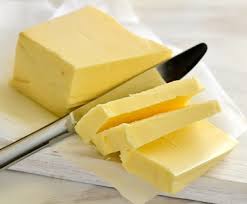
Breaking News
 Charlie Kirk Murder Suspect Makes First Courtroom Appearance
Charlie Kirk Murder Suspect Makes First Courtroom Appearance
 Social Justice Gone Wild: Oklahoma BLM Leader Indicted On Fraud, Money Laundering Charges
Social Justice Gone Wild: Oklahoma BLM Leader Indicted On Fraud, Money Laundering Charges
 Six men are making AI decisions for 8 billion people
Six men are making AI decisions for 8 billion people
Top Tech News
 Build a Greenhouse HEATER that Lasts 10-15 DAYS!
Build a Greenhouse HEATER that Lasts 10-15 DAYS!
 Look at the genius idea he came up with using this tank that nobody wanted
Look at the genius idea he came up with using this tank that nobody wanted
 Latest Comet 3I Atlas Anomolies Like the Impossible 600,000 Mile Long Sunward Tail
Latest Comet 3I Atlas Anomolies Like the Impossible 600,000 Mile Long Sunward Tail
 Tesla Just Opened Its Biggest Supercharger Station Ever--And It's Powered By Solar And Batteries
Tesla Just Opened Its Biggest Supercharger Station Ever--And It's Powered By Solar And Batteries
 Your body already knows how to regrow limbs. We just haven't figured out how to turn it on yet.
Your body already knows how to regrow limbs. We just haven't figured out how to turn it on yet.
 We've wiretapped the gut-brain hotline to decode signals driving disease
We've wiretapped the gut-brain hotline to decode signals driving disease
 3D-printable concrete alternative hardens in three days, not four weeks
3D-printable concrete alternative hardens in three days, not four weeks
 Could satellite-beaming planes and airships make SpaceX's Starlink obsolete?
Could satellite-beaming planes and airships make SpaceX's Starlink obsolete?
Can saturated fat be healthy? Grass-fed butter increasingly seen as a nourishing, healthy food

Mention the word, "butter" to most people, and they're likely to say they avoid it like the plague. After all, it's long-been considered a no-no – the antithesis of "healthy." If you want to lose weight, keep your cholesterol in check and just stay in overall good shape, you shouldn't even think about butter.
Or should you?
On a seemingly regular basis, there's news that confirms the health benefits of butter – but not just any butter. In particular, grass-fed butter is considered a viable choice for health-conscious individuals. A great deal of information has been surfacing showing that this kind of butter can produce positive biological results thanks to its many nutrients.
Here's why you might want to consider incorporating more grass-fed butter into your diet.
Health benefits of eating grass-fed butter
For example, it's loaded with healthy fatty acids in an amount that simply blows the lid off of more traditional butter from grain-fed cows. While the latter is filled with the fatty acid CLA (conjugated linoleic acid) – considered a fat loss supplement – butter from grass-fed cows is said to have a whopping five times the amount of CLA. Five times!(1)
Additionally, when compared to grain-fed butter, grass-fed butter has higher amounts of Omega-3 fatty acids and vitamin K2. Omega-3 fatty acids, which are also common in foods like flaxseeds and salmon, help do everything from reducing cancer to boosting heart and cognitive function. As for vitamin K2, it's linked to keeping bone, prostate and heart health intact.(2,3)
Busting the saturated fat myth
What about saturated fat, which grass-fed butter contains? Avoiding it is a good thing, right?
Not so fast.
Interestingly, numerous studies show that consumption of it may not be as horrific as previously thought.

 Defend yourself like a pro
Defend yourself like a pro First totally synthetic human brain model has been realized
First totally synthetic human brain model has been realized Mach-23 potato gun to shoot satellites into space
Mach-23 potato gun to shoot satellites into space

